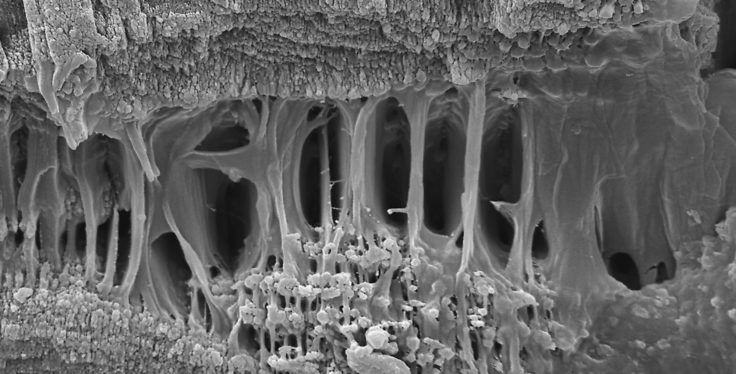Cold Skeletons
Cold Skeletons
- Start date
- 1 November, 2013
Does the cold affect how animals grow? Are skeletons different in Antarctic marine species, which survive almost permanently below 0°C?
It is well known that animals grow at different rates across the planet, with slower growth at lower temperatures. At low temperatures the ability to make proteins is markedly affected and they become stiffer as temperatures decrease. Animal skeletons are built by depositing calcium carbonate or phosphate on a protein matrix. Protein conformational changes with temperature alter the deposition of structural materials and hence their functional characteristics. Therefore we expect that the skeletons of species adapted to extreme low temperatures will have different structural properties from those which live in temperate waters, such as the UK and around Europe.

However, hardly anyone has looked in detail at the skeletons of Antarctic species, so this project really is looking into the unknown. Understanding how skeletons are formed and how this process may be affected by temperature addresses the BAS Grand Challenge of Polar Change.
These studies will also form the basis for future projects analysing structural properties that has the potential for direct industrial impact through the synthesis of novel biomaterials.
Our aims are to:
Understand the effects of temperature on development and mineralisation in marine species from both temperate areas and from the Antarctic
- Is the chemical composition different? if so how does this affect skeleton strength?
- Is the actual structure of the skeleton different?
This will enable us to understand the chemical and structural adaptations in the skeletons of low temperature marine species and also predict how skeletons in Antarctic species may change when the oceans warm.
Melody Clark
Genetics Leader IMP 3
BAS Science Management Team, Biodiversity, Evolution and Adaptation team
Research Collaborators
Dr David Shepherd, University of Cambridge
Prof Serena Best, University of Cambridge
Prof Ruth Cameron, University of Cambridge